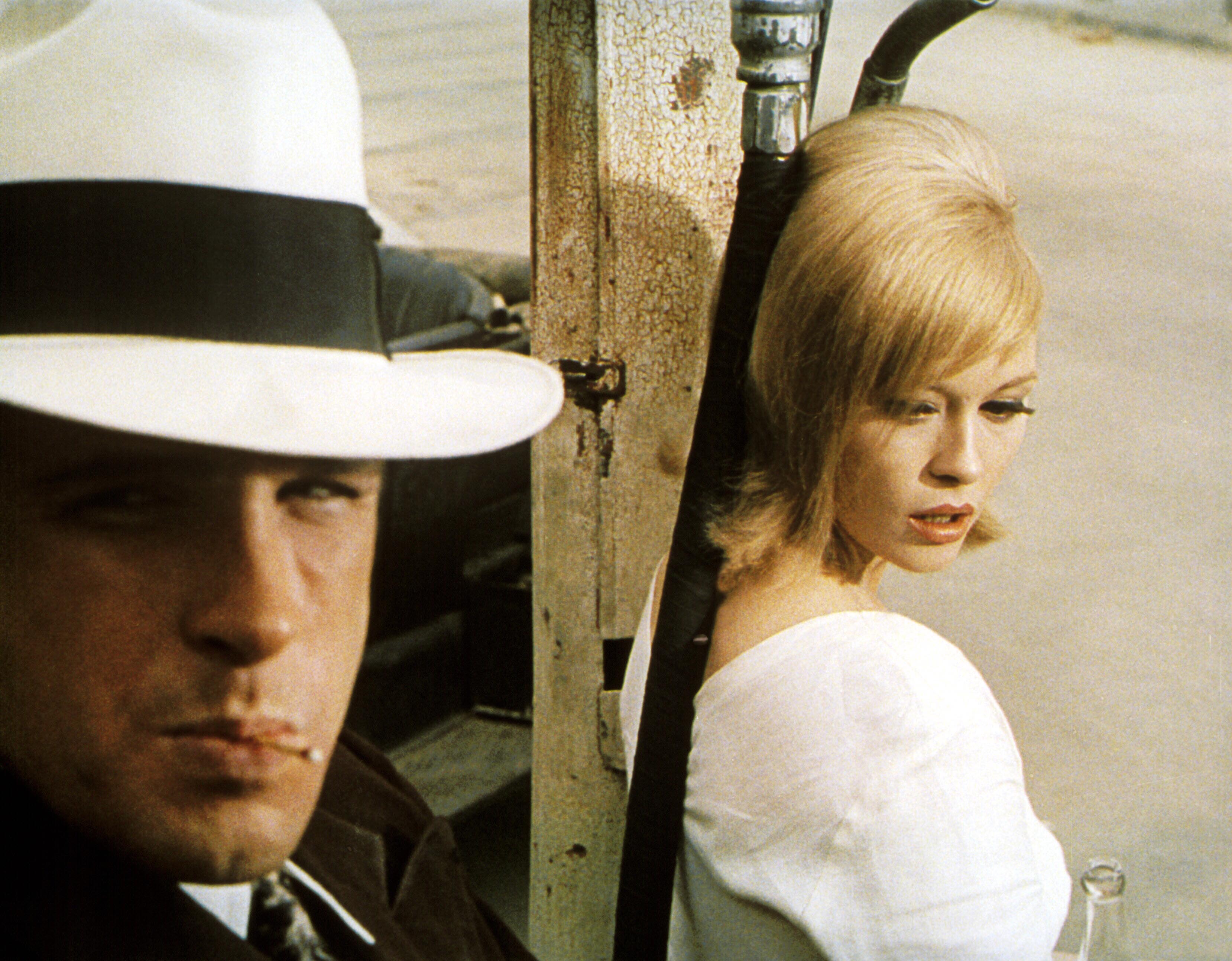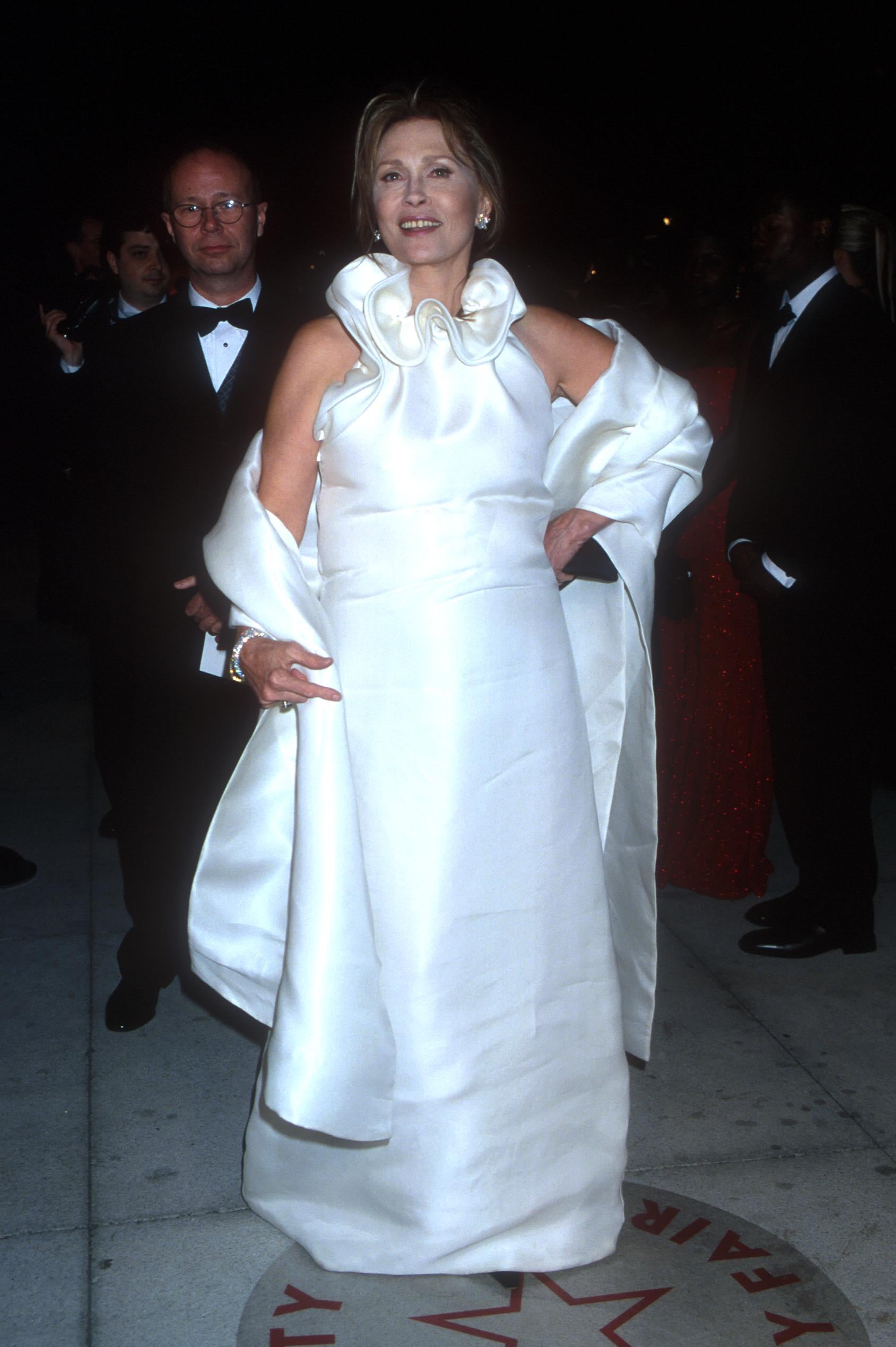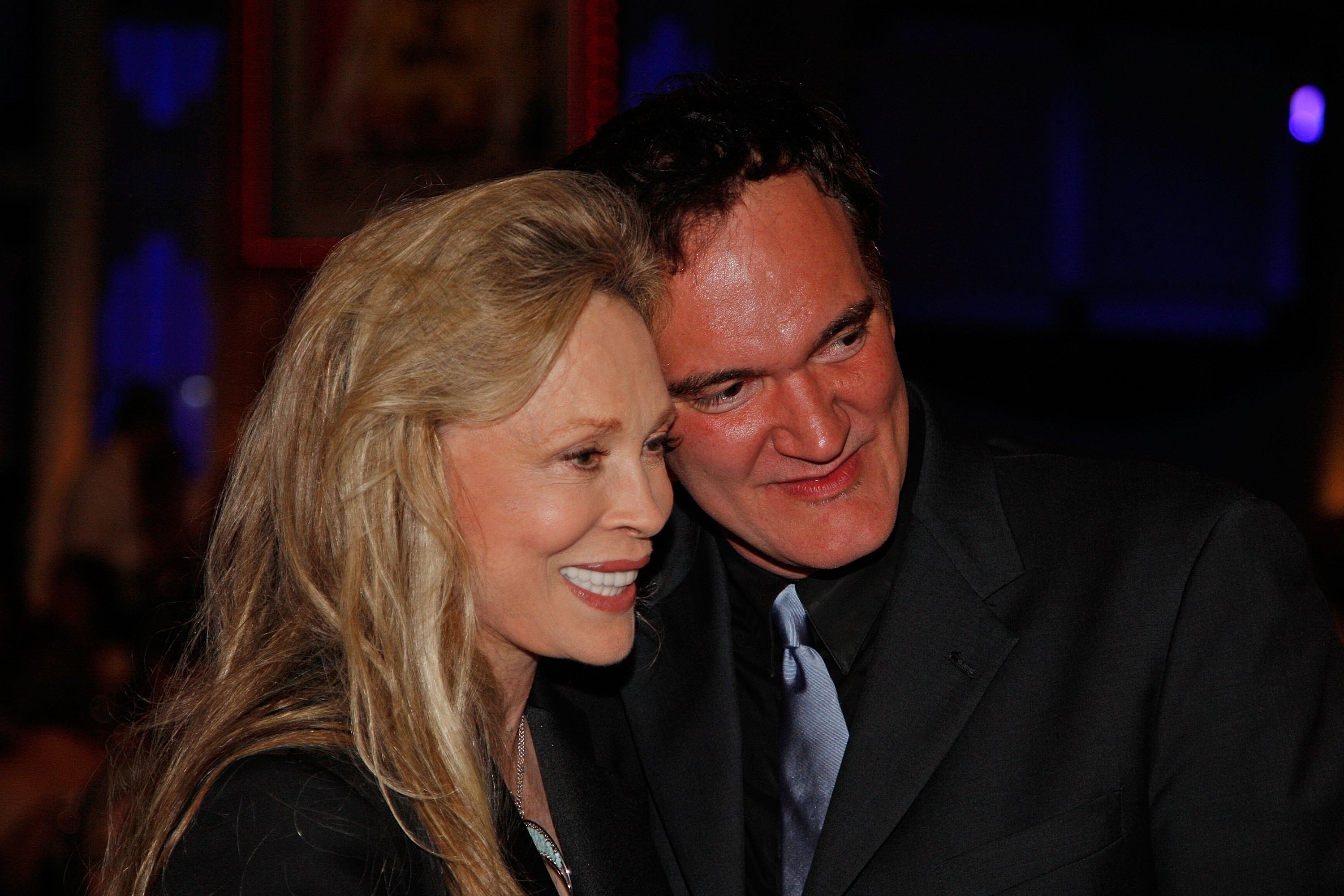Faye Dunaway, the Hollywood star who paid the highest price for her independent spirit
Ahead of a new film about Dunaway premiering in Cannes, Geoffrey Macnab looks at how the ‘Bonnie and Clyde’ actor went from being one of the biggest stars in the world to appearing in B-movies – a cautionary tale of how Hollywood often marginalises strong women

It’s been nearly six decades since Faye Dunaway starred in Arthur Penn’s 1967 caper Bonnie and Clyde, but her smalltown waitress still stands among the most glamorous gangsters in movie history. With her blonde hair, red lipstick, and unmistakable air of mischief, you knew she was trouble.
Dunaway’s Bonnie Parker, who teamed up with Clyde Barrow (Warren Beatty) to go on a crime spree in the film, was a Depression-era bank robber and yet, with her high cheekbones and piercing eyes, she had effortless poise. No one else could wear a beret and smoke a cigar quite like her. She even made dying in a hail of machine gun bullets look chic, like a piece of slow-motion, avant-garde performance art. This was her third feature and it turned her into an international star.
The newcomer was as distinctive on camera as any old Hollywood legend like Garbo or Joan Crawford (whom she was later to play), and yet she was thoroughly modern too, looking as if she had just stepped out of some French New Wave movie shot on the Left Bank. She and Beatty complemented each other perfectly. “They’re young; they’re in love: and they kill people!” read the advertising slogan for the film that, after a bumpy arrival in American cinemas, became a huge hit.
It was no surprise that the Florida-born actor went on to win multiple awards and appear alongside the biggest names of her era. During the late 1960s and throughout the 1970s, she was at the very top of the A-list, working with, and often eclipsing, actors like Beatty, Steve McQueen, Robert Redford, Dustin Hoffman, Marcello Mastroianni, Kirk Douglas, Jack Nicholson, Michael Caine and William Holden.
Now 83, Dunaway is due in Cannes later this month for the premiere of Faye, Laurent Bouzereau’s documentary about her life and career. The film includes interviews with admirers and collaborators including Mickey Rourke, her co-star in 1987’s Barfly; James Gray, who directed her in The Yards (2000); and Sharon Stone, whom she famously accompanied to the premiere of Basic Instinct. “Now you are a big star and they can all kiss your ass,” Dunaway told her after the film was given a rapturous reception. The documentary also touches on Dunaway’s struggles with mental health issues and bipolar disorder.
A new book chronicling one of her most notorious failures, With Love, Mommie Dearest: The Making of an Unintentional Camp Classic, is also shortly to be published. Network (1976), for which she won a Best Actress Oscar for her performance as a ruthlessly ambitious TV exec, is being re-released later this summer. Roman Polanski’s Chinatown (1974), featuring Dunaway as a femme fatale in 1930s Los Angeles, is celebrating its 50th anniversary.
The Bonnie and Clyde star is, then, back in the limelight where many feel she rightly belongs. It’s impossible, though, not to notice the lop-sided shape of her career or the fact that it has been many years since she made a truly memorable movie. After Mommie Dearest (1981), where she played malevolent mom Joan Crawford terrorising her daughter, the leading parts very conspicuously seemed to vanish.

Dunaway’s story stands as a cautionary tale of how Hollywood often marginalises strong women. She rarely took on sympathetic roles and always stood up for herself, even against autocratic directors like Otto Preminger and Roman Polanski. Ultimately, she was punished for her independent spirit.
“I began to play these urban, sophisticated, neurotic women,” Dunaway later commented of the “strong, convention-flaunting” parts she sought. “I wasn’t a little starlet, some brainless beauty.” Instead, she was invariably cast as characters “pushing the envelope”.
No one complained about her performances. She brought coolness and wit to her role as the svelte and impossibly glamorous insurance investigator, “like a female James Bond, complete with designer dress”, as she described the character, tailing, and falling in love with, dashing millionaire thief McQueen in The Thomas Crown Affair (1968). McQueen was well known for stealing scenes but she matches him, chess move for chess move. As the psychologically damaged Evelyn Mulwray in Chinatown, she initially seems cold, arrogant and spoilt but then audiences discover the sexual abuse the character has endured and how vulnerable she really is. In Network, her hard-driving TV exec eventually becomes a figure of pathos, someone so fixated on her career that she is helpless to stop her private life imploding.
Nor was Dunaway afraid of going in an offbeat direction. She made a charismatic but surprisingly credible alcoholic, knocking back the booze with Rourke in Barfly, and was wonderfully imperious and eccentric as the desert matriarch who has an affair with the much younger Johnny Depp in Arizona Dream (1993).
As she grew older, she was labelled “difficult” and treated as if she was similar to the awkward and outspoken characters she so often portrayed on screen. There were stories of her high-handed and bizarre behaviour on set. Peter Biskind writes in Easy Riders Raging Bulls that, during the making of Chinatown, according to several sources, she was in “the habit of peeing in wastebaskets rather than take the walk to her trailer”. Biskind acknowledged that “when asked about her urinary habits”, she said she had “no recollection” of fouling the bins, but the gossip spread.

As Dunaway does makes clear in her autobiography, her perfectionism continually counted against her too. “The fact is a man can be difficult and people applaud him for trying to do a superior job… and a woman can try to get it right and she’s ‘a pain in the ass’.”
As her fame increased, she recoiled at the level of public attention she was receiving and was then accused of being “cold”. Fans admired her without warming to her and didn’t stick with her when the wheel turned against her. Her role as the abusive parent in Mommie Dearest, a biopic based on a book by Joan Crawford’s adopted daughter, clearly damaged her reputation. “The hard, brittle persona of Crawford had grafted itself on to me,” she acknowledged. Dunaway, who was a big Crawford fan, later claimed that when she was making the movie, she could feel Crawford sitting in the room beside her. Not that Joan’s ghostly presence gave her much help. This was a big budget movie that was savaged during the editing process and it quickly became an object of ridicule.
The media became increasingly hostile toward her. Look online and you’ll find plenty of stories about her supposedly Cruella de Vil-like antics
A Ashley Hoff, author of the new book about the movie, recently pointed out to the Air Mail podcast that Mommie Dearest was one of the last of those character-driven dramas of the 1970s like Chinatown and Network. “We saw, as the Eighties progressed, the rise of the Spielbergian special effects-laden blockbuster movies.”
There was no space for Dunaway in this brave new world. She may have played a megalomaniacal villainess in Supergirl (1984), but she wasn’t cut out for spandex fantasies. The media became increasingly hostile toward her. Look online and you’ll find plenty of stories about her supposedly Cruella de Vil-like antics, raging against crew members who stand in her eye line, slapping technicians or making irate phone calls.
Worst of all, in the mid-Nineties, Dunaway endured a very public bust-up with British musical impresario Andrew Lloyd-Webber. He had cast her as ageing movie star Norma Desmond in the stage version of Sunset Boulevard but then fired her. The story got out that her singing wasn’t up to scratch but she sued, claiming the real reason for her dismissal was that the show was losing money and he was looking for an excuse to close it. They eventually settled but it was a humiliating episode.

In her autobiography, Dunaway writes about working with Bette Davis on the TV movie, The Disappearance of Aimee (1976) and falling out badly with her. The Hollywood legend was intensely jealous that Dunaway had the leading role and set out to undermine her. Years later, Davis was still bad-mouthing her on TV talk shows. “I was just the target of her blind rage at the one sin Hollywood never forgives in its leading ladies – growing old,” Dunaway concluded of her co-star’s wildly antagonistic behaviour toward her.
Now, Dunaway is in Davis’s position and is being portrayed as an embittered old-timer herself. But that’s not how she is regarded by Italian producer-director Louis Nero, who has worked with her on two movies, The Man Who Drew God (2022), in which she co-starred alongside Franco Nero and Kevin Spacey, and The Rage (2008). He talks of her humility and her kindness toward him as a young filmmaker. “When I met her [in 2008], I understood immediately she is a legend. She made me very comfortable,” he tells The Independent.
It is clear, though, that Dunaway has slipped into a twilight world of B-pictures and low budget European art house flicks. That’s why the revival of Network and the screening of the new documentary in Cannes are so welcome. It’s high time audiences are jolted into remembering the time before Mommie Dearest, when she was giving a series of electrifying performances in some of the very best movies ever made.
The HBO Original documentary ‘Faye’ has its world premiere at the Cannes Festival, 14-25 May; ‘Network’ is re-released on 28 June
Join our commenting forum
Join thought-provoking conversations, follow other Independent readers and see their replies
Comments
Bookmark popover
Removed from bookmarks